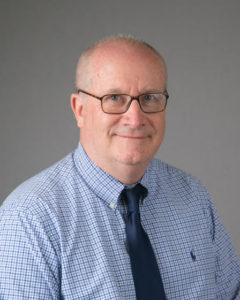In 2014, the National Association of Colleges and Employers (NACE) established a task force of college career service and community human resource professionals to research and define the term “career ready” and establish measurable competencies. The goal of the task force was to establish a list of competencies that would define career readiness for college graduates in today’s market.
Mastery of the eight career readiness competencies will enable a student to successfully “land” any entry-level position for a college graduate. These competencies must be practiced, refined, and mastered during an individual’s college years through experiences both inside and outside of the classroom.
years through experiences both inside and outside of the classroom.
The first of the eight competencies is Critical Thinking and Problem Solving. NACE defines this as the following: An ability to exercise sound reasoning to analyze issues, make decisions, and overcome problems The individual is able to obtain, interpret, and use knowledge, facts, and data in this process, and may demonstrate originality and inventiveness.
Developing critical thinking and problem-solving skills often times comes through experience. This competency is used in everyday life, and it is important to be more conscious of where the skills are used and how effective the results were. Try to be more aware the next time a difficult situation arises that requires data analysis, review all factors involved, and determine the best course of action.
The following is a brief list of ways to practice critical thinking and problem-solving skills:
- Break down all problems or challenges into steps
- Think through all possible solutions
- Identify relevant information
- Analyze data completely
- Keep your emotions in check
- Do not make judgments too quickly
- Collaborate with others to test solutions
- Be open and listen to multiple perspectives

- Distinguish between fact and opinion
- Produce a thorough and accurate report for a project, class, or activity
So, if you want to “land” that dream job right out of college — master critical thinking and problem-solving skills now through challenging academic courses, enrolling in an internship, and participating in activities outside of the classroom.
 Patrick J. Clifford is the Director of Career & Professional Development at Albertus Magnus College. He has degrees from both Fairfield and Southern Connecticut Universities and is a National Certified Counselor and Licensed Professional Counselor in the State of Connecticut.
Patrick J. Clifford is the Director of Career & Professional Development at Albertus Magnus College. He has degrees from both Fairfield and Southern Connecticut Universities and is a National Certified Counselor and Licensed Professional Counselor in the State of Connecticut.
